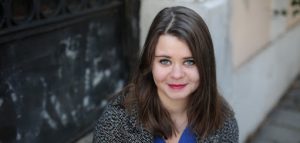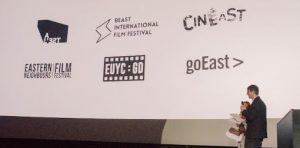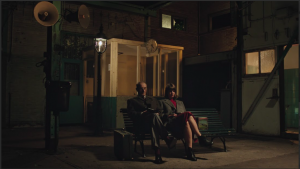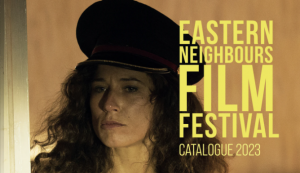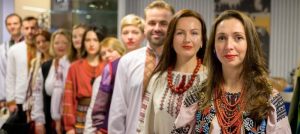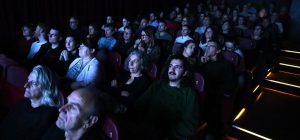
Danijela Stajnfeld: Victims of Sexual Violence Are Treated as People With Bad Morals
Author: Sandra Selakovic/Mama u zemlji lala
Art has always had the power to heal, even more, to incite rebellion – especially when everyone else is silent. As a mirror of reality, art is brave enough to show what we as a society would like to turn a blind eye to. We will have the opportunity to watch such films as part of the Eastern Neighbours Film Festival special program The Power of Your Story.
With the actress and director Danijela Stajnfeld, the author of the film Hold Me Right, online magazine Mama u zemlji lala talked about the reasons that prompted her to make her first documentary, but also about her struggle.
Hold Me Right is an intimate film composed of testimonies of victims of violence. The heroes of Danijela’s film are not only fighting for themselves, but they are also giving their voice on behalf of those who need support. The film premiered at the Sarajevo Film Festival, after which Daniela’s fight for the truth began.
You made a film that is deeply personal and universal at the same time. In your opinion, what do victims of violence have in common, regardless of gender and type of violence?
All the effort I invested while I was still silent as a victim of violence about everything that happened to me, found support in that universality. Victims of any kind of violence, especially sexual violence, are marked in society. In addition to the burden they carry, victims face condemnation and a lack of understanding of the environment. They are treated as people with bad morals who deserve to be victims. With this film, I wanted to emphasize the universal stigmatization of sexual violence and that, unfortunately, it can happen to anyone: women and men, boys and girls, famous actresses who are considered to be more protected than other vulnerable groups. Unfortunately, in most cases, the victims knew the perpetrator very well. These are people they have personally trusted or their environment is guaranteed. I speak on behalf of the majority because we usually do not have the freedom and the way to talk about it. If there is a problem in society that is not talked about, where the victim is not trusted, then that problem will flourish.
You’ve been living in America for a while. What is the situation there and can you compare it with the situation in our area?
America is a puritanical society in which it is a shame to talk about sex or the human body in general. Also, you have extreme religious communities and important institutions that have their powers, so many violations go unpunished. There is still an epidemic of such crimes in America, even after the emergence of the Me Too movement. Despite that, I always say: Me Too was not a moment, but a movement. It is up to all of us to be participants in that movement. We have brave individuals who stood up and tried to support women with their voices and the right to talk about what happened to them. These are brave women like Mirjana Karanovic, Anita Mancic, Merima Isakovic, Alisa Stojanovic, and others, but they are all individual bright examples. Unfortunately, they are in the minority. Systemically, nothing has changed, and as for the MeToo movement in our country, it has even dropped because the victims are not trusted, most of them have been convicted, so it will be harder for each subsequent victim to raise his voice.
In the film, you not only talk to the victims, but you have gone a step further by confronting those who commit violence. Did that angle help you come to certain conclusions on the path to healing?
Probably yes. Preparing for those interviews, I realized that I would get nothing from the other side if I approached it with condemnation and prejudice against those perpetrators. And that practice cured me. I began to realize how damaged they were as human beings when they could have committed some terrible deeds. How much of that essential is missing from their being. Working with them was a kind of therapy through which I tried to understand, but never justify.
You are an artist. What is the real power of art in healing deep wounds?
I can only answer how much the work on the film has cured me, but what heals me, even more, is that I know how much the film means to other people. While making the film, I hoped that it would cause catharsis to people, and judging by the reactions of the audience – that’s what happens.
Screenings:
Thursday, April 21, 9.30 PM, Filmhuis Den Haag
Friday, April 22, 5.30 PM, Filmhuis Den Haag


